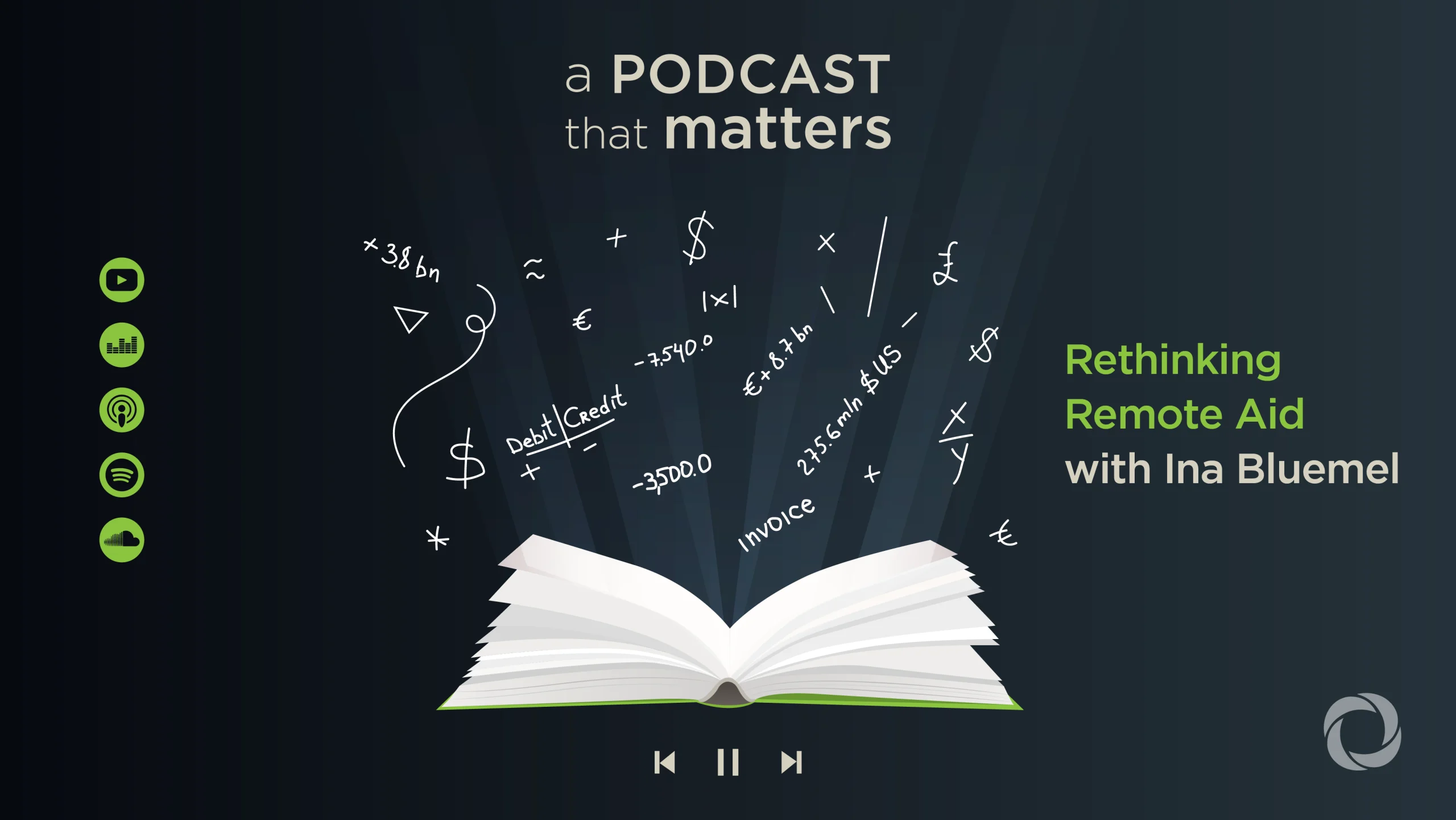The hard truth of modern humanitarian action was this: access had closed, risks had risen, and remote delivery had become unavoidable. In this episode of the DevelopmentAid Dialogues podcast (Season 3), host Hisham Allam spoke with Ina Bluemel—a veteran of emergency health, WASH, and logistics leadership across WHO, IFRC, and multiple NGOs—about what it took to keep aid effective when workers could not set foot on site, frameworks felt rigid, and trust was under strain.
Download the transcript of this episode.
Bluemel set the tone bluntly: remote operations demanded relationship-building, coordination, and response start-up all at once—without physical presence—and shifted risk onto local partners who faced the threats international teams avoided. “This is never a one-man show,” she said, arguing remote response only worked when integrated teams supported partners and respected existing local systems instead of overriding them.
On donors, she said the core challenge lay in accountability frameworks that scaled control but struggled with context. Many tools “lacked adaptability to a local context,” she argued, creating the familiar misfit where “your answer is A, but your structures are only providing B, C, and D.” The consequences, she added, included needs overlooked, wrong voices amplified, and vulnerable groups sidelined—unless agencies invested in triangulation, stronger local networks, and monitoring and evaluation (M&E) shaped by the context rather than imposed upon it.
Her prescription was radical in its simplicity: transparency “to the bone.” Bluemel acknowledged the sector’s fear that admitting problems risked future funding—“If we admit we’ve got it wrong, the likelihood that we’re going to get money in the future is reduced,” she said—but she argued donors must engage as partners, not just gatekeepers, and agencies must institutionalize feedback loops that made communities as central to accountability as funders. On data quality, she added that teams should combine primary and secondary sources, resolve discrepancies through deeper research, and expand capabilities with GIS, spatial analysis, and AI—without abandoning the “good old” discipline of multi-source triangulation.
Remote management, she emphasized, was not a shortcut—it was “an enormous amount of extra work”—but it kept lifelines open where otherwise agencies would “pack up” and leave people to fend for themselves. At its best, it accelerated meaningful localization: investing so local partners “felt accountable,” ensuring local knowledge shaped plans and M&E, and making adaptability a first principle rather than an afterthought.
Against tightening budgets and donor retrenchment, Bluemel warned of a “humanitarian emergency” inside the system and called for genuine rethinking that amplified new actors and turned “lessons identified” into lessons truly implemented.
Listen to the full episode with Ina Bluemel on DevelopmentAid Dialogues. Stay informed. Stay engaged.

